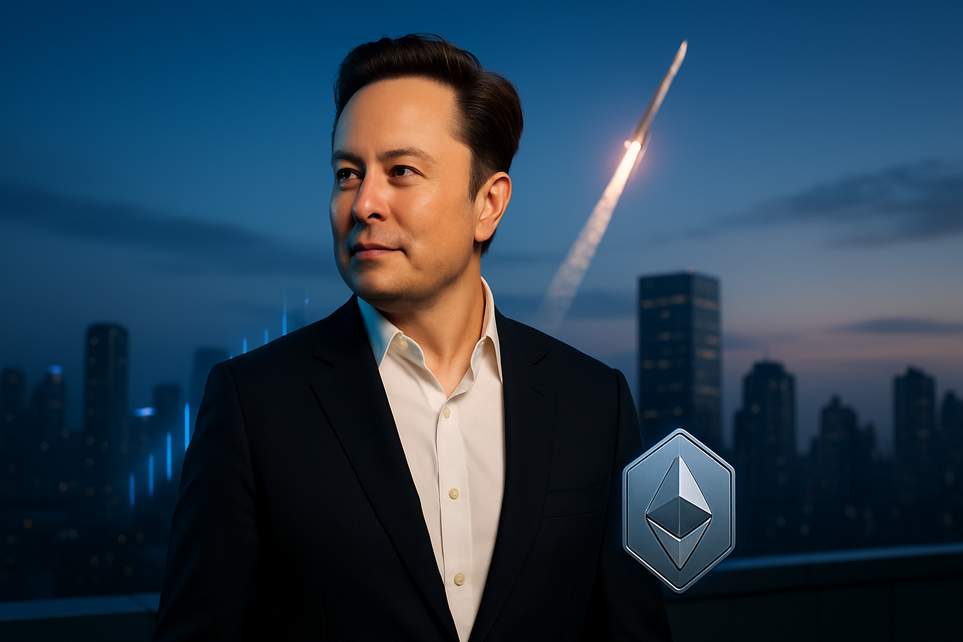The race to $1 trillion: Who should win — Elon Musk or Ethereum?
Why a $1 trillion person matters (and why this is weird)
Imagine one human sitting on a stack of cash so huge it could buy a small country’s worth of coffee. That’s the spectacle we’re watching: a single founder’s fortune ballooning toward the trillion-dollar mark. It’s not just about a rich person winning a popularity contest — it’s a signpost. When one individual can hold influence at that scale, it reshuffles how we think about power, policy, and who gets to call the economic shots.
There’s a nerdy irony here for fans of decentralized money: the original pitch for systems like Bitcoin was to make value less dependent on people and more dependent on code and networks. Yet here we are, watching a real-world jockeying match between concentrated equity optionality and distributed network adoption. Both sides have logic, and both raise questions about what kind of future we prefer.
Valuation theater: the scenarios, the math, and the robotaxi-shaped plot twists
Let’s keep the math light but real. One person’s path to a trillion can be heavily leveraged: giant stock option packages, private company valuations, and a handful of technical breakthroughs (robotaxis! humanoid robots! AI that doesn’t immediately combust). That’s a recipe for fortunes that swing wildly on a few binary outcomes — and those outcomes hinge on regulators and safety permits almost as much as they depend on engineering.
On the flip side, a monetary network (hello, crypto) needs broad adoption, busy transaction flows, and real-world utility to push market cap into the trillions. That’s a slower, steadier climb that scales with usage rather than a single person’s equity grant.
Playbook of possible futures, quick and human-friendly:
– Conservative: Autonomy and humanoids are slower than anticipated. The public company lands somewhere in the low trillions, private ventures lag — net worth gets close to a trillion but might not quite clear it. Networked assets keep chugging along but stay below the trillion mark.
– Base case: Some autonomy products work well in factories or limited commercial settings, private companies gain serious value, and the founder comfortably cracks the trillion threshold. A popular crypto could also hit the trillion-level market cap if its price per coin rockets and adoption keeps pace.
– Bull case: Full robotaxis and large-scale humanoids arrive, private firms surge into multi-trillion territory, and the founder’s wealth becomes staggeringly higher than a trillion. Simultaneously, a crypto network could also reach multi-trillion status, but that requires massive, mainstream adoption.
Important kicker: regulators control a lot of the gates. Safety approvals, deployment permits, and federal reviews can delay or accelerate outcomes — which means the calendar on policy decisions matters just as much as product demos or press conferences.
So what should we actually care about?
Is the race itself the point? Maybe not. The headline is sensational, but the deeper story is about systems and incentives. When fortunes concentrate at the very top, research suggests public preferences, taxation, and policy tend to tilt toward the wealthy. Admiration for mega-rich figures can soften appetite for redistribution. That’s not just an academic gripe — it nudges budgets, rules, and political will.
There are also psychological and social effects: comparing yourself to visible extremes of wealth changes behavior and attitudes, and often not for the better. Meanwhile, the math shows how tiny percentages of global wealth translate into outsized individual clout. A trillion isn’t just a number; it’s a power multiplier.
So instead of rooting for a person or a protocol, maybe ask: what kind of system do we want to build? One centered on individual star power and optionality, or one that rewards wide adoption and network utility? We can admire brilliant engineering and also insist on rules and norms that prevent extreme concentration from warping politics and public goods.
Whatever happens first — a person or a protocol hitting the trillion milestone — the real victory would be designing institutions that keep markets healthy, governance accountable, and everyday people from getting steamrolled by celebrity wealth. That’s the part worth cheering for, or at least not rolling our eyes at.

